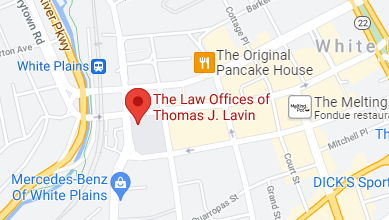Post-traumatic stress disorder (PTSD) is not the first thing people think of when they’ve had an injury that causes them to be unable to work. Most people think of physical incapacitation, such as broken limbs, paralysis, loss of vision, or other conditions that make it difficult or impossible to do their job. PTSD may not be a physical impairment, but it can be as debilitating as the worst bodily injury, especially if combined with a physical injury. Here’s what you need to know.
What Is PTSD?
PTSD is a disorder that occurs in people who either were in or witnessed a traumatic event, such as a workplace injury or car accident. In the years around World Wars I and II, it was called shell shock and battle fatigue. Regardless of the name used, it’s a debilitating, sometimes frightening condition that can have intense effects on day-to-day life.
According to the American Psychiatric Association, there are four broad categories of PTSD symptoms.
Intrusion. This refers to how the traumatic event can replay itself over and over in the victim’s mind, sometimes so vividly that it feels like the event is really happening again. The person has no control over these visions, neither able to predict nor stop them.
Avoidance. Not surprisingly, the victim wants to avoid thinking or talking about the injury to avoid having those horribly vivid memories return. That can lead to them being unable to visit the place where the accident happened, meeting other people who were present at that time, or even doing anything that reminds them of the accident.
How Long Can PTSD Last After an Accident?
It varies from person to person, but PTSD may begin as soon as a month after the accident, but it can also not appear until a year later. Once it starts, it can last for months or years. There are several treatments that people can try to alleviate the symptoms, such as talk therapy, cognitive processing or behavioral therapy, or some medications. There’s no guarantee that PTSD will disappear entirely, but there are good opportunities to at least reduce its overall effects.
Can PTSD Make You Unable to Work?
Absolutely. With PTSD, a person’s ability to function normally can be disrupted in multiple ways that can make it impossible for them to work. Because PTSD can cause problems with everything from memory to energy levels to focus to being able to manage emotions, it has many ways to disrupt your day-to-day work life.
But beyond the mental and emotional complications, the stress of PTSD can also cause additional physical problems. Extreme fatigue and recurring physical pain are just some of the physical conditions that can manifest because of PTSD.
Can I Get Workers’ Compensation or Social Security Benefits if I Have PTSD from an Accident?
It’s possible that you may be eligible for benefits of some type if your PTSD after your accident makes you unable to work. It’s highly advised to work with an attorney that specializes in personal injury outcomes, as the law is complex, and there are many requirements that must be met. Having an attorney who’s well-versed in those requirements can help the process go more smoothly.
Social Security benefits. Social Security offers disability benefits for people living with PTSD. The agency will want thorough medical verification of your diagnosis, including all medical records (doctor, clinic, hospital, counselors, mental health, and physical/occupational therapists). If you’re working with a mental health provider, you’ll want them to provide a document called a Residual Functional Capacity form. This form goes explicitly over how PTSD has affected your ability to do your job. That can bear a great deal of weight for the Social Security Administration.
Workers’ compensation. If the accident that caused your PTSD occurred at work, you may be eligible for workers’ compensation. While some states require a physical injury to qualify for workers’ compensation, in New York, PTSD alone is enough to file a claim. That includes someone who was not directly involved in a workplace accident but witnessed it and was subsequently traumatized. This compensation has paid time off, treatment, and other resources. It’s a time-sensitive claim, so be sure to bring in an attorney to ensure you don’t miss deadlines.
What Should I Do if PTSD from an Accident Has Made it Impossible for Me to Work?
Call us at 718-829-7400 for a free case evaluation. PTSD is a complex, frightening condition, and being pushed to resume work when you’re not ready or able can worsen it. Our team of experienced, knowledgeable attorneys can walk you through the process of claiming disability due to PTSD, so you can have the time and space you need to cope with the trauma you’ve experienced and learn how to manage or reduce it.








